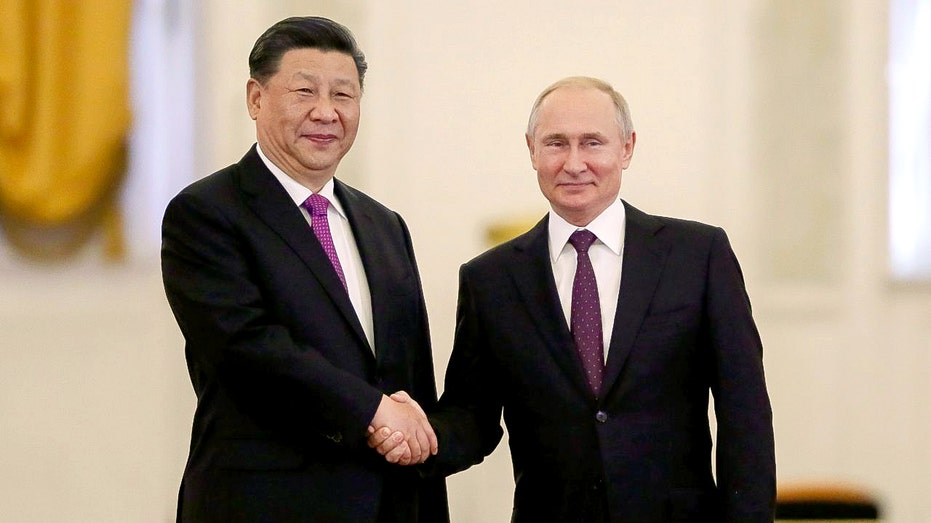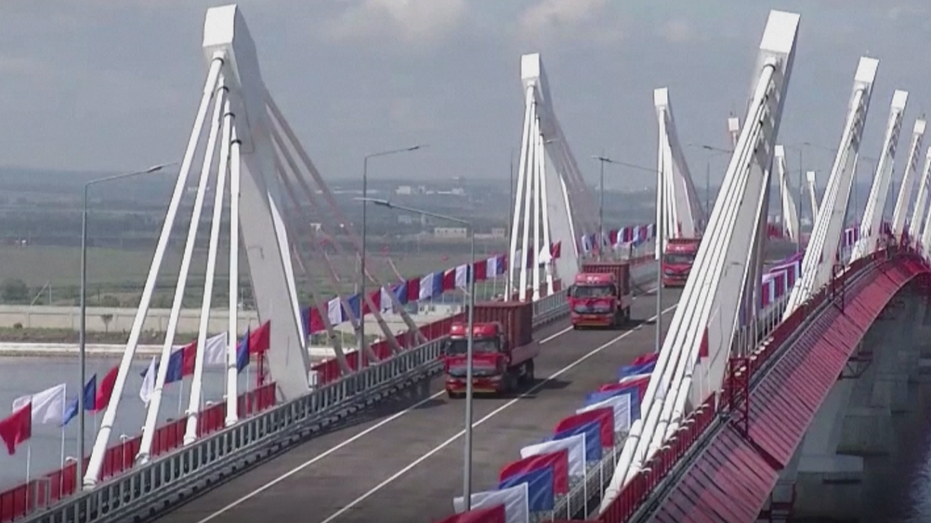Russia, China open bridge to boost trade as Moscow grapples with Ukraine sanctions
Russia and China hope the new bridge will increase trade amid Western sanctions
Biden not lifting China tariffs ‘won’t help our economy’: Wolfpack Research CIO
Wolfpack Research founder and CIO Dan David argues Biden not lifting tariffs on China won’t help the U.S. economy in the ‘long term.’
Russia and China announced the opening of a new bridge with "special symbolic meaning" Friday in hopes of bolstering trade as Moscow continues to feel the effects of sanctions imposed by the west over its invasion of Ukraine.
The bridge now linking Blagoveshchensk, Russia, to Heihe, China, over the Amur river will slash the travel distance of Chinese goods into western Russia by 930 miles, giving a boost to trade flow with Beijing that Moscow believes will grow to $200 billion by 2024, according to Reuters.
"In today's divided world, the Blagoveshchensk-Heihe bridge between Russia and China carries a special symbolic meaning," Yuri Trutnev, the Kremlin representative in the Russian Far East, was quoted by the news agency as saying.
China, which buys Russian natural resources and agricultural goods, has criticized Western sanctions on Moscow.
CHINA'S 'COORDINATION' WITH RUSSIA WON'T CHANGE 'NO MATTER' HOW GLOBAL POLITICS EVOLVES

Trucks roll across the Blagoveshchensk-Heihe bridge during an opening ceremony Friday. (Reuters / Reuters)
The bridge reportedly took around four years and $342 million to construct.
Rebekah Koffler, a former DIA intelligence officer and the author of "Putin's Playbook: Russia's Secret Plan to Defeat America," told Fox Business "Russia and China are deepening its relations as part of the so-called ‘no-limits’ partnership that Russian President Vladimir Putin and Chinese leader Xi Jinping announced (around the time of) Russia’s invasion of Ukraine.
IBM, MICROSOFT LAYING OFF HUNDREDS OF EMPLOYEES IN RUSSIA

Russian President Vladimir Putin shakes hands with his Chinese counterpart Xi Jinping at the Kremlin in Moscow June 5, 2019. The two countries have been strengthening their relations as part of a "no limits" partnership. ( REUTERS/Evgenia Novozhenina/Pool / Reuters Photos)
"Although Moscow and Beijing always publicize their relationship as ‘strategic partners,’ ... Russia and China are not true allies," she continued. "They are a marriage of convenience as Russia views China as its security threat No. 2, after the U.S. and NATO.

The bridge is about a half mile long, according to Reuters. (Reuters / Reuters)
CLICK HERE TO READ MORE ON FOX BUSINESS
"That being said, Russia and China's increased collaboration, which includes joint military exercises can present a serious security and geopolitical challenge to the United States," she added.





















